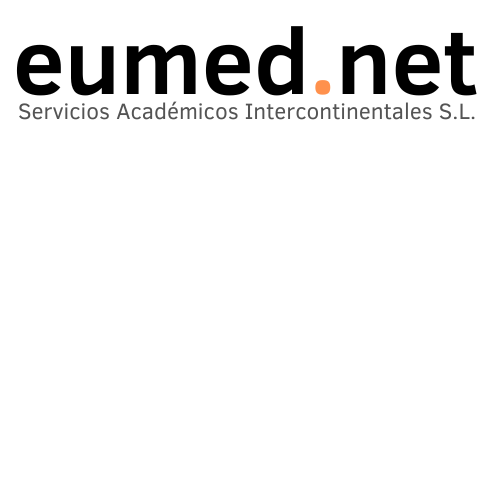Animal welfare culture:
Approach to principles and perceptions in responsible ownership of companion animals.
DOI:
https://doi.org/10.51896/oidles.v18i36.567Keywords:
Animal welfare, Pets, Urban fauna, Responsible ownership, Animal rightsAbstract
The study examines the animal welfare culture in the province of Guayas, Ecuador, focusing on the practices and the perceptions of pet owners. The central problem addresses the variability in the knowledge and implementation of animal welfare practices among pet owners. The methodology used a mixed approach, with qualitative predominance complemented by quantitative data. A non-experimental, transversal and bibliographic descriptive design was developed. The data collection was implemented through surveys distributed on Google Forms to a representative random sample of 384 pet owners, ensuring the suitability of the participants through a 24-question Likert-type questionnaire. The descriptive statistical analysis was carried out with SPSS, highlighting that the majority of respondents feed their pets at regular times (55.5%) and use specific foods for their species, breed, size and age (51.6%). However, there is variability in other practices such as regular walks and contact with other animals. The results show that animal welfare principles, such as adequate feeding and veterinary consultation, are largely applied, although aspects such as freedom to express normal behaviors and the absence of fear and distress are only partially met. It is concluded that, although there is a good general understanding and application of animal welfare practices, the knowledge of related laws and regulations needs to be improved. This suggests the need to increase the education and the awareness about responsible ownership and animal welfare inorder to im prove the quality of life of pets.
Downloads
References
Alcaldía del Distrito Metropolitano de Quito. (05 de enero de 2021). Ordenanza
Metropolitana del Bienestar Animal en el Distrito Metropolitano de Quito. Ordenanza Metropolitana No. 019 – 2020.
Asamblea Nacional Constituyente. (2008). Constitución de la República del Ecuador.
Registro Oficial N.º 449. Quito, Ecuador.
Asamblea Nacional del Ecuador. (2017). Código Orgánico del Ambiente. Registro
Oficial N.º 983. Quito, Ecuador.
Asamblea Nacional del Ecuador. (2021). Código Orgánico Integral Penal. Registro
Oficial Suplemento 180. Quito, Ecuador.
GAD Municipal de Cuenca. (29 de junio de 2016). Gaceta oficial. Ordenanza para el
control y Manejo de la Fauna Urbana y la Protección de Animales Domésticos de Compañía del Cantón Cuenca
GAD Municipal de Santo Domingo. (30 de octubre de 2015). Ordenanza Municipal No.
E-019-VQM. La Ordenanza Municipal que Determina las Condiciones en Las Que se Debe Mantener a los Perros y Otros Animales Domésticos.
Gómez-G LF, Atehortúa-H CG, Orozco-P SC. La influencia de más mascotas en la vida
humana. Rev Col Cienc Pec 2007; 20: 380.
Gaspar-Santos, M., Bonilla-Briones, M., Vera-Sánchez, P., Veliz-Rivas, J. Efectos
jurídicos del control y sanción por dar muerte a animal de fauna urbana Iustitia Socialis: Revista Arbitrada de Ciencias Jurídicas y Criminalísticas, ISSN-e 2542-3371, Vol. 7, Nº. Extra 2 (Edición Especial), 2022; 1176.
Gutiérrez, G; Granados, D., Piar, N. Interacciones humano-animal: Características e
implicaciones para el bienestar de los humanos. Revista Colombiana de Psicología, núm. 16, 2007, pp. 163-183.
Hernández Sampieri, R., Fernández Collado, C., & Baptista Lucio, P. (2014). Metodología de la investigación (6ª ed.). McGraw-Hill.
Huertas-Canén, S., El bienestar animal: un tema científico, ético, económico y político
(2009) Agrociencia Uruguay, 13 (3); 45.
Ilustre Municipalidad del Cantón Durán. (30 de septiembre de 2010). Ordenanza que
Regula la Protección, Tenencia, Control, Comercialización y Cuidado de Animales de Compañía Dentro del Cantón Durán:
Jiménez, A. (2015): Bienestar Animal un Enfoque Bioétic. Entorno Ganadero Octubre-
Noviembre 2015. En línea: https://bmeditores.mx/entorno-pecuario/bienestar-animal-un-enfoque-bioetico-2398/
López-Ruiz. J., Ruiz-Murillo, J. y Arellano-Merino, J. (2017): Diversidad de aves en
gradientes urbanos, potencial uso recreativo y aviturístico en la ciudad de Guayaquil. Revista Turydes: Turismo y Desarrollo, n. 22 (junio 2017). En línea: http://www.eumed.net/rev/turydes/22/aviturismo-guayaquil.html
Mark, J. (2017). Los perros en el antiguo Egipto. Recuperado el 3 de 04 de 2024, de
Worldhistory: https://www.worldhistory.org/trans/es/2-1031/los-perros-en-el-antiguo-egipto/
Muy Ilustre Municipio de Guayaquil. (16 de febrero de 2023). Gaceta Municipal N.º 58.
Ordenanza que Regula la Protección, Tenencia y Control de la Fauna Urbana en el Cantón Guayaquil
Municipio de Loja (2 de febrero de 2021). Ordenanza N.ª 0030-2021, Ordenanza Para el
Manejo y Protección de la Fauna Urbana en el Cantón Loja,
Quintana López, J. A., & Morales Luna, J. C. (2005). Las aves y el hombre. Imagen
veterinaria, 5(2), 4-5.
Tellez-Girón, R. (2020). Una historia de gatos, Elementos: ciencia y cultura, año/vol. 6.
Número 036, Benemérita Universidad Autónoma de Puebla pp. 61-66
Valadez, R. (2009). El fenómeno de la domesticación animal en los albores del siglo
XXI. AMMVEPE, 20(6), 137.
Valadez R. (2002) El origen del perro (segunda parte): entre el lobo doméstico y el
criadero primitivo. AMMVEPE; 13: 105.
Zapata-Herrera M, Sanmartín-Laverde CM, Hoyos-Duque TN. Comprensión del
vínculo persona mayor-mascota como alternativa para la promoción de la salud. MedUNAB. 2021; 24(2):193-202
Published
Versions
- 2024-07-16 (3)
- 2024-07-12 (2)
- 2024-07-08 (1)
Issue
Section
License
Copyright (c) 2024 Javier López Ruiz

This work is licensed under a Creative Commons Attribution-NonCommercial 4.0 International License.
Usted es libre de:
Compartir — copiar y redistribuir el material en cualquier medio o formato
Adaptar — remezclar, transformar y construir a partir del material
Bajo los siguientes términos:
Atribución — Usted debe dar crédito de manera adecuada, brindar un enlace a la licencia, e indicar si se han realizado cambios. Puede hacerlo en cualquier forma razonable, pero no de forma tal que sugiera que usted o su uso tienen el apoyo de la licenciante.
NoComercial — Usted no puede hacer uso del material con propósitos comerciales.




